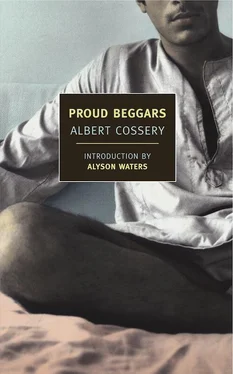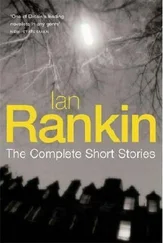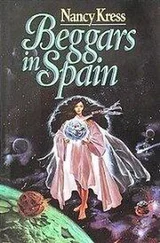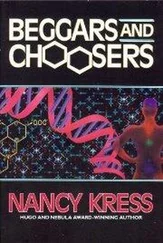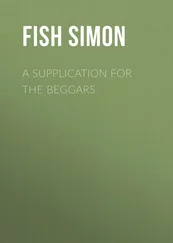Curious population! Delighted with this fraternal and wonderfully comforting togetherness, Yeghen made his way through the crowd. He was on his own territory; here, his ugliness didn’t offend anyone. On the contrary, in contrast with these humble men it acquired a kind of radiance. He was quickly recognized and greeted by friendly exclamations. Several times he was invited to have a glass of tea, but he declined on the pretext of some vague business. Actually, he wanted to find Gohar; he must certainly be waiting for him, deprived of drugs and prey to suffering. Gohar’s suffering was the only iniquity that Yeghen couldn’t tolerate in a world full of iniquities. He put all the generosity he was capable of into offering Gohar his daily portion of hashish. To give this scrap of joy to a man — be it only a few hours’ worth — seemed to him more effective than all the vain attempts of reformers and idealists who wanted to lift sad humanity out of its sorrow. Yeghen gloried in being the apostle of immediate, tangible efficacy in this domain. In his opinion, elaborate plans and wise theories destined to relieve a people’s misery were only sinister jokes. He laughed derisively, taking care to maintain his public image.
Without wanting to admit it to himself, he was still obsessed by the memory of his recent encounter with the young girl. Now that he had made contact with her by means of a poem, he worried about the probable repercussions of this adventure on his private life. First of all, he was certain he did not feel any kind of love for her. For him, it was at heart an endeavor devoid of any desire for conquest. To sleep with the daughter of a civil servant, and a minor at that, implied considerations to which Yeghen was hardly disposed. Nonetheless, this girl intrigued him by the effrontery of her behavior; she seemed to defy him. Her reaction to his ugliness denoted a nature that was sly, at the very least. Yeghen saw revealed in her behavior something abnormal, unhealthy, and it incited him to pursue what was a unique experience for him. This was the first time he found himself to be the object of a woman’s attention, and he was not beyond deriving a certain smugness from it. He could not resolve to easily abandon such a source of amusement and perhaps, who knows, sensual excitement. He was aware of the laws of probability enough to recognize that such an amorous adventure would only offer itself to a man like him once every three generations. He must, then, take advantage of it. Moreover, those piano lessons added to the strangeness of the adventure. Not that Yeghen liked music; on the contrary, he abhorred it with all his heart, but he doubted that the young girl would ever have the occasion to play in his presence.
Should he tell Gohar about it? First, he must find him. His my-opic gaze grew completely dim in the garish light of the acetylene lamps reflected by the enormous mirrors decorating the walls. He was advancing with difficulty through the throng when he felt someone take his arm.
“My dear Yeghen, do me the honor of sharing my table.”
Yeghen turned around. The man was a notorious pederast of majestic corpulence wearing a green silk robe and an ample aubergine-colored coat. His hair and mustache were dyed and he wore heavy rings on his fingers. He was a very rich fabric merchant who prided himself on his literary taste.
The fat merchant’s affability toward him always amused Yeghen because of the ambiguity it cast over their relationship.
“Well then, how is poetry doing these days?”
“It’s dying.”
“Never mind! Come have a glass of tea with me. I’m eager to hear you talk.”
“Excuse me, it’s not possible. I’m looking for someone. I absolutely must find him.”
“Ah, I understand,” the man said, with a knowing wink.
“You understand nothing. I’m not at that game yet. But perhaps some day … ”
“Well, that would be a great day. I will be happy to count you among my friends.”
“You don’t mean it!” Yeghen protested. “With my face?”
“Don’t forget that you have other charms for me. I’m sensitive to genius.”
“In other words, you want to sleep with my genius.”
They burst out laughing.
“But that too is impossible,” Yeghen continued. “I have no genius. Take care. I’ll see you very soon.”
“Your modesty becomes you. At least give me the pleasure of accepting a cigarette.”
He held out a pack of expensive cigarettes to Yeghen, who took one which the man lit with a gold lighter.
“Thank you.”
Yeghen left the fat merchant and resumed his search for Gohar. Where was he hiding? He didn’t see him anywhere. He began to grow more uneasy, especially since he felt the presence of a little cigarette-butt scavenger behind him, glued to his heels, watching and waiting for the moment he would throw away his cigarette. The allure of this expensive butt seemed to exercise a kind of fascination on the little boy. He followed Yeghen’s trail with the look of a starving dog. Finally Yeghen had had enough of this pursuit and threw him the half-smoked cigarette.
“Here, you wretch! You won’t be up my ass anymore!”
“May God forbid!” cried the child, picking up the cigarette.
It was completely by chance that he spotted Gohar.
In a barbershop, a kind of hovel without a door lit only by the distant café lights, Gohar sat enthroned on the only chair, exhausted by fatigue, given up to the desolate wisdom of a universe crumbling all around him. Yeghen’s voice made him jump.
“Greetings, Master!”
“You’ve come at last, my son!”
Yeghen bent to the ground, parodying a bow. The respect due his master did not exclude a joke.
“Ever at your command. I hope I didn’t disturb your meditations.”
“Not at all. Sit down.”
Yeghen ran to fetch a chair from outside, then sat down next to Gohar with a happy grin. Each time he was transported by the same elation; one would have thought that Gohar’s presence made the most unbelievable bliss possible. All Yeghen’s sorrows, even those buried in his unconscious, disappeared at the sight of his master. He even forgot his ugliness.
In the intimacy of the barbershop, Gohar’s silence acquired an ineffable power of eternity. Yeghen respected this silence; he knew that it hid secret, incommunicable joys. But suddenly he was alarmed by the feeling of a major oversight; even though he never asked for anything, Gohar was surely waiting for one thing: the drug. Yeghen quickly took a folded paper from his pocket, opened it, and broke in two the piece of hashish it contained. He offered the bigger part to Gohar, who took it without a word, rolled it around in his fingers to make a ball, then raised it to his lips and began to suck on it. Already, he felt life slowly returning to him and blood flowing in his atrophied veins. He closed his eyes, savoring, in all its fullness, that delicious moment that follows extreme privation. A little flabbergasted by this too hasty manner of taking the drug, Yeghen didn’t move. This oral drug-taking that Gohar appreciated because of its ease always startled Yeghen like some sleight of hand. In his view, drug-taking demanded a more complicated ritual. Yeghen loved the fantastic atmosphere of the smoking rooms, the heavy smoke, opaque and stagnant like fog, and especially the sweet, lingering odor that stayed in one’s clothes for a long time, more insidious than a woman’s perfume. All this had a certain romanticism dear to his poet’s soul that Gohar swept away with one stroke by stuffing the hashish directly in his mouth. Each time, Yeghen experienced a kind of dread at this waste. Even though he told himself that the desired effect was the same, he couldn’t help regretting this lack of interest in the preparations and the decor.
Читать дальше
